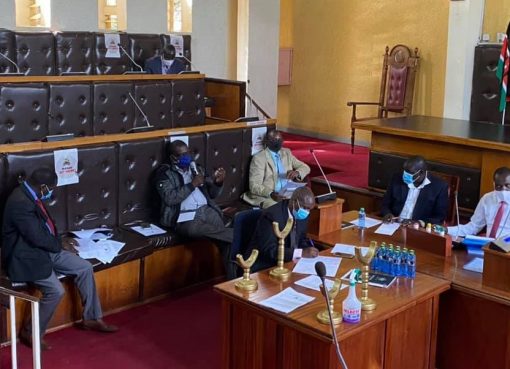Farmers in Kirinyaga have taken up sorghum farming in droves in the wake of a rising demand for the commodity by beer brewers.
David Mucee, a farmer from South Ngariama, delivered the highest volume of sorghum to EABL, harvesting 20,000 kilogrammes from his 40-acre piece of land.
“I was among the farmers who piloted sorghum farming in Mwea last season and am happy. Sorghum has become my main cash crop. It requires less work and can grow even during dry spells,” he said, adding that sorghum has turned his dry land into a productive food basket.
John Mwai, another farmer, harvested 2,000 kilogrammes of sorghum from his one-acre land in the Ngurubani area.
“Sorghum does not require a lot of rainfall and grows well even in dry conditions. This makes it relatively easier to grow as compared to other crops we are used to, such as maize,” he said.
Mwai says one of the biggest challenges for farmers has been marketing, post-harvest losses, and the fluctuation of prices for commodities.
“They purchased all the sorghum at a good price immediately after I harvested. We are happy for the support we have gotten from the county government, which has supplied us with certified seeds for planting,” he said.
With the support of the county government, local farmers in the semi-arid part of Mwea Constituency have capitalised on the increased demand by producing sorghum in larger quantities.
The demand is being driven by the ready market for the product from East African Breweries Limited (EABL), which is contracting farmers to grow the product for beer brewing.
To encourage more farmers to venture into sorghum production, Kirinyaga Governor Anne Waiguru distributed 3,000 kilogrammes of sorghum seeds for free to 800 farmers in the Tkogonye area during her development tour in the area.
Governor Waiguru says that the sorghum project was aimed at promoting the production of high-value traditional drought-resistant crops and cereals.
“Sorghum is a fast-maturing crop that takes only three months to mature, and it is not only used as human food but can also be used as raw material for the production of livestock feeds, among other products,” Waiguru observed.
She asked the farmers to take advantage of the ready-market opportunity provided by EABL to plant sorghum and earn more money.
EABL-Eastern Regional Agricultural Manager Jacob Githigi says the trial produce from Kirinyaga surpassed all other regions that are currently engaged in the EABL contract sorghum farming in the country.
The manager said the county has the potential to become a leading sorghum producer in the region, and the company was looking forward to enrolling more farmers in its contract farming programme.
“Now we want to extend the acreage because we see a lot of potential in Kirinyaga. Our people are very hardworking, and this is manifested in how they have embraced sorghum farming,” said Githigi.
He said EABL required about 40,000 metric tonnes of sorghum for the production of its low-end Senator keg beer every year and challenged farmers to take advantage of the demand.
EABL lauded the Kirinyaga County Government for its effort to empower farmers to produce sorghum so that they could earn more and improve their livelihood.
“As a company, we have donated two tonnes of sorghum to the county government for distribution to farmers for the next rain season,” he said.
Apart from brewing beer, sorghum is a staple food item in many Kenyan households. It is used to make porridge, bread, and other traditional dishes.
Due to its high nutritional value, sorghum has gained popularity in recent years as a healthier alternative to other cereals. As a result, there is a high local demand for sorghum products in Kenya.
By David Wandeto





